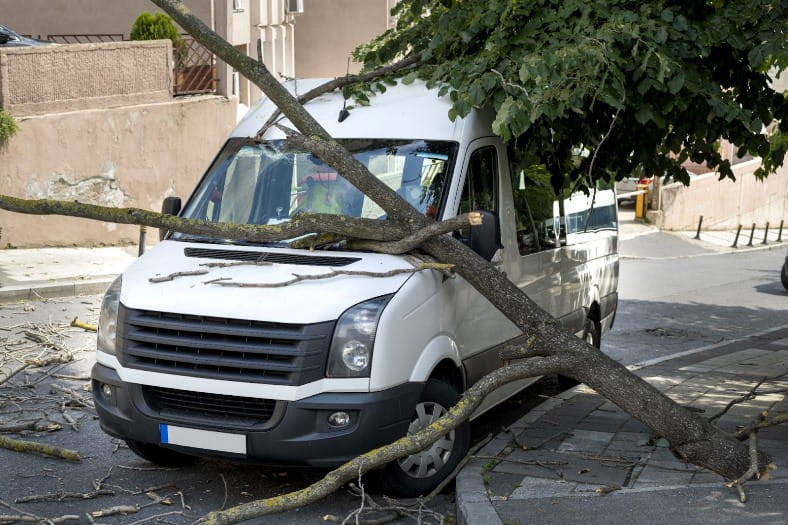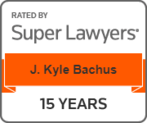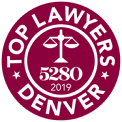What to Know about the Colorado Wrongful Death Statute of Limitations
Navigating the death of a loved one can be a painful and difficult process. If the death was caused by a negligent party, the road ahead can be complicated and even overwhelming. Knowing your rights as you move through a wrongful death claim is important to help you secure the compensation you, your loved one, and your family deserves. This is where the assistance of a Wrongful death attorney can serve invaluable.
At Bachus & Schanker, our dedicated team of attorneys, investigators, and paralegals is committed to helping you during your time of need. Contact our team today for a free consultation.
- What Is the Colorado Wrongful Death Statute?
- Common Situations That Result in Wrongful Death Lawsuits
- Who Can Bring a Claim under the Colorado Wrongful Death Statute?
- How Long Do You Have to File a Wrongful Death Claim in Colorado?
- Recovering Compensation from a Wrongful Death Lawsuit
- What Is the Difference Between a Wrongful Death Lawsuit and a Survival Action?
- Who Can File a Colorado Survival Action Claim?
- Should I Work with a Colorado Wrongful Death Attorney?
- You Deserve Fair Compensation
If your loved one has been the victim of a wrongful death, it’s essential to understand how the law applies to your circumstances. Here’s what you should know about filing a wrongful death claim in Colorado.
What Is the Colorado Wrongful Death Statute?
Colorado wrongful death statute is codified in Colorado Revised Statutes § 13-21-201, § 13-21-202, § 13-21-203, and § 13-21-204 under the Colorado Wrongful Death Act.
Under this law, family members are legally allowed to bring a lawsuit against any negligent entity that has caused a loved one’s death. The law outlines that family members can only bring forward wrongful death lawsuit claims if the victim would have been able to file a personal injury claim had they not died.
Common Situations That Result in Wrongful Death Lawsuits

A wrongful death lawsuit can arise from various situations. Typically, however, there is usually one or more negligent parties that caused conditions that lead to wrongful death. These conditions can be intentional or purposeful and can occur with or without malice.
There are some situations where a wrongful death lawsuit is more likely to arise. These situations include but are not limited to the following:
- Automobile accidents
- Slip and fall injuries
- Fatal accidents in the workplace
- Medical malpractice injuries
- The use of a defective product
Who Can Bring a Claim under the Colorado Wrongful Death Statute?
Colorado’s Wrongful Death Act allows only certain individuals to bring forward a wrongful death lawsuit. There are also statutes of limitations that determine when a claim can be brought forward.
In the first year after the death has occurred, a lawsuit can be brought forward by the surviving spouse of the decedent. If the deceased has no spouse, then a suit can be brought forward by the victim’s heirs or a designated beneficiary.
In the second year after the death occurred, any surviving children can file a wrongful death lawsuit. If there are no surviving children, then the parents of the decedent can file a claim.
If the decedent’s children file a wrongful death lawsuit, then the surviving spouse or any other designated beneficiary can join in on the claim within 90 days.
This line of succession is intended to help protect the interests of those who depended on the victim the most. It is for this reason that the surviving spouse can file first, children can file second, and parents can file last.
How Long Do You Have to File a Wrongful Death Claim in Colorado?
The wrongful death statute of limitations requires that the loved ones of a wrongfully killed individual have two years to file a claim. However, the Colorado wrongful death statute of limitations offers an exception in cases when the death occurred due to vehicular homicide. With this exception, a loved one has up to four years after the death has occurred to file a claim.
Recovering Compensation from a Wrongful Death Lawsuit
Wrongful death lawsuits enable loved ones to collect compensation in the form of economic, non-economic, and potentially even punitive damages. These damages are designed to help compensate victims for the loss of their loved one.
Economic damages encompass all monetary losses that result from a wrongful death. This can include but is not limited to the following:
- Medical expenses
- Funeral expenses and burial costs
- The loss of past and future wages
- The cost of damaged property
- Any other verifiable monetary loss associated with the wrongful death
Losses that are not monetarily measured are classified under non-economic damages. Common non-economic damages can include but are not limited to the following:
- Love and affection
- Comfort
- Companionship
- Protection
- Assistance
In some cases, a claim can be awarded punitive damages. Punitive damages are intended as a form of punishment for the negligent party. Unlike economic and non-economic damages, which are designed to compensate the claimant financially for the loss, punitive damages serve as a deterrent to keep the liable party from being either intentionally or recklessly negligent in the future.
What Is the Difference Between a Wrongful Death Lawsuit and a Survival Action?
After a loved one’s death at the hands of a negligent party, both a wrongful death lawsuit and a survival action claim can be brought forward. The guidelines for Colorado’s survival actions are codified in C.R.S. § 13-20-101.
Both claims allow for the recovery of damages; however, who receives the award differs depending on the claim. A wrongful death lawsuit seeks to compensate survivors for the loss of their loved one, not the decedent themselves. On the other hand, a survival action seeks to compensate the decedent. This award is granted to the decedent’s estate.
When filing a survival action claim, the decedent’s estate can only seek economic damages. This can include but is not limited to the following:
- Medical bills
- Lost wages
- Funeral and burial expenses
- Loss or damage of personal property
Additionally, there are no caps on economic damages a survival action can seek.
Who Can File a Colorado Survival Action Claim?
Another difference between wrongful death and survival claims is who can file. A wrongful death lawsuit allows a spouse, child, and parent to bring forward a claim. With a survival action, only individuals representing the decedent’s estate can bring forward a claim.
If the decedent does not have a named representative, a Colorado court may appoint one. The decedent’s representative will make all the important decisions associated with the claim. This can include deciding when to settle a claim.
Navigating a Survival action claim can be overwhelming, especially if the representative has never done so. Working with an attorney experienced in wrongful death and survival action claims can serve as a great resource to recoup damages a decedent is entitled to.
Should I Work with a Colorado Wrongful Death Attorney?

Working with a Colorado wrongful death attorney can be a helpful resource as you navigate how to file a wrongful death claim. If you feel your loved one’s death was the result of a negligent party, understanding the rights of you and your loved one can help you obtain the compensation you deserve.
Sources:
You Deserve Fair Compensation
Don’t let the insurance companies intimidate you into accepting less than you deserve. We’re ready to fight for you.

Written and Legally Reviewed By: Kyle Bachus
![]() 4.6 ★★★★★ 1,461 Google Reviews
4.6 ★★★★★ 1,461 Google Reviews
Kyle is a member of the Colorado and Florida Bar associations and has served on the Board of Directors of the Colorado Trial Lawyers Association for more than twenty years in total. Over the years, Kyle has achieved justice for many clients. He has served on numerous committees and repeatedly won recognition from his peers at both the state and national level. He is proud of the role he has played in the passage of state and national legislation to protect consumers and is a frequent speaker and guest lecturer.







